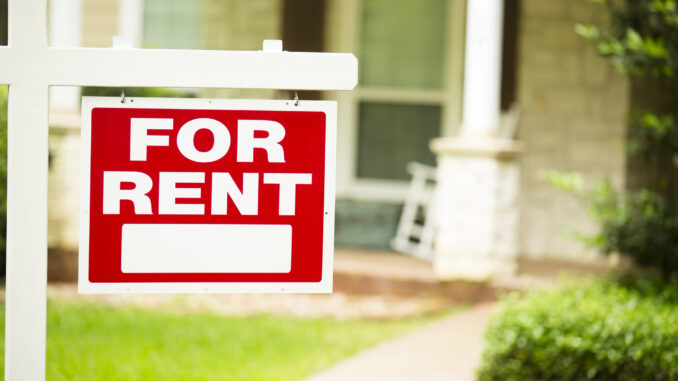
Previously Published in The Messenger
By Madison Warren
The Suffolk County Legislature has approved I.R.1329, a measure aimed at cracking down on landlords who exploit rental subsidies by operating unsafe, overcrowded homes. The law seeks to close a loophole that has allowed certain property owners—often LLCs controlling dozens or even hundreds of homes—to bypass inspections and profit at the taxpayer’s expense. At the same time, residents live in dangerous and unsanitary conditions.
Unsafe Conditions and Overcrowding
Legislator Nick Caracappa (C-Selden), the sponsor of the bill, described the severity of the issue in stark terms. In communities like Mastic, Shirley, and others across Suffolk County, he said, group homes have become overcrowded to the point of being public hazards.
“These landlords are packing twenty, even thirty people into a single-family home,” Caracappa said. “They’re putting up makeshift walls the size of closets, turning these houses into death traps. If a fire breaks out and twenty or more people die, who’s responsible—the landlord, the County, the Town? Taxpayer money should not be funding these unsafe homes.”
Caracappa explained that a loophole in County law has fueled the problem. While the County is required to pay landlords for residents through vouchers, the Towns and Villages are not explicitly authorized to inspect those same properties. That gap left local governments “defenseless,” he said, as some landlords openly violated building, sanitary, and fire codes without consequence.
Closing the Loophole
I.R.1329 changes that by empowering Towns and Villages to enforce building and safety codes on homes that receive county rental subsidies. If a property fails inspection—or if a landlord blocks inspectors from entering—the County will no longer be required to issue payments.
“This legislation is about restoring accountability,” said Caracappa. “We’re not targeting the good landlords who do things by the book. We’re going after the egregious violators who exploit the system, jeopardize lives, and drag down entire neighborhoods.”
The Human and Community Impact
Beyond fire hazards, Caracappa noted that overcrowded homes create other serious problems. Cesspools designed for single-family use cannot handle the waste from twenty or more residents, leading to unsanitary conditions. Neighbors have reported people being forced to relieve themselves outside, while crime, drug use, and declining property values have further destabilized communities.
“These conditions don’t just endanger the tenants— they bring down the quality of life for everyone around them,” Caracappa said. “Families are leaving, businesses are leaving, and investment companies just buy up more properties to expand this destructive model. We have to put a stop to it.”
Partners on the Horseshoe
Legislator Jim Mazzarella (R-Moriches), who co-sponsored the bill, emphasized that the legislation is ultimately about fairness and human dignity.
“All landlords must be held to the same standards required under New York State building codes,” Mazzarella said. “By empowering local municipalities to inspect dwellings where rental subsidies are provided, we ensure that every Suffolk County resident, regardless of financial means or life circumstances, can live with dignity in a secure and healthy environment. We also have a responsibility to protect our first responders and preserve the quality of life for neighboring residents, ensuring our communities remain safe, stable, and strong.”
Alongside Caracappa and Mazzarella, Legislator Dominick Thorne (R-Patchogue) has been an essential advocate for the bill. As a co-sponsor, he has worked just as diligently to advance the legislation underscoring the need for strong enforcement measures and accountability to protect both residents and Suffolk communities.
A Collaborative Effort
The measure is the result of joint efforts among county lawmakers, civic associations, and town officials. Caracappa credited Brookhaven Town Supervisor Dan Panico (R-Center Moriches) with strengthening fines for landlords who fail inspections or deny inspectors access, which helped lay the groundwork for countywide reform.
Panico spoke in favor of these reforms at the July General Meeting of the Suffolk County Legislature, citing absentee landlords who have not only reduced the quality of life in Mastic, but whose homes have targeted repeat criminals, particularly sexual predators.
“This is multiple levels of government working together—town, county, and state,” Caracappa said. “We finally have the tools to hold violators accountable, take back control of our neighborhoods, and protect the residents who truly need our help.”
Looking Forward
Both Caracappa and his co-sponsors emphasized that the legislation is not intended to penalize landlords who operate responsibly. Instead, it is designed to ensure that taxpayer dollars support only safe, sanitary, code-compliant housing.
“We want to help people in need—Veterans, domestic violence survivors, families struggling with addiction or mental health challenges,” Caracappa said. “But they deserve real housing, not overcrowded firetraps. This law makes sure that Suffolk County is no longer complicit in funding dangerous and exploitative practices.”
With I.R.1329 now in place, Suffolk County hopes to send a clear message: public safety, accountability, and dignity for residents will take precedence over profit.

